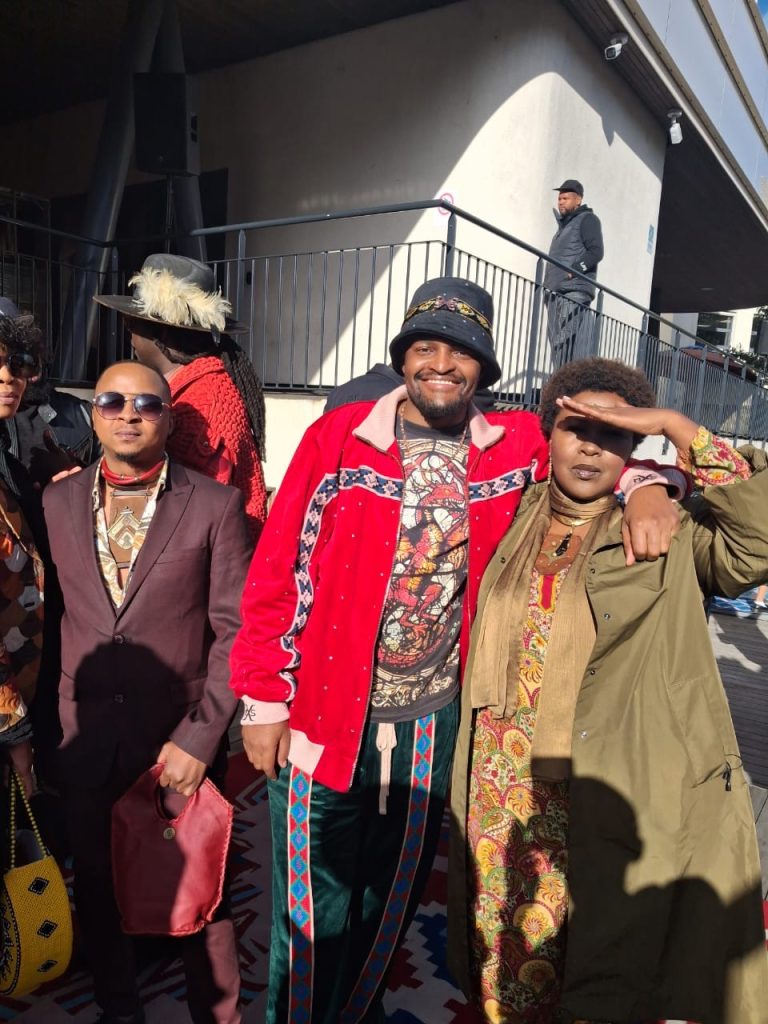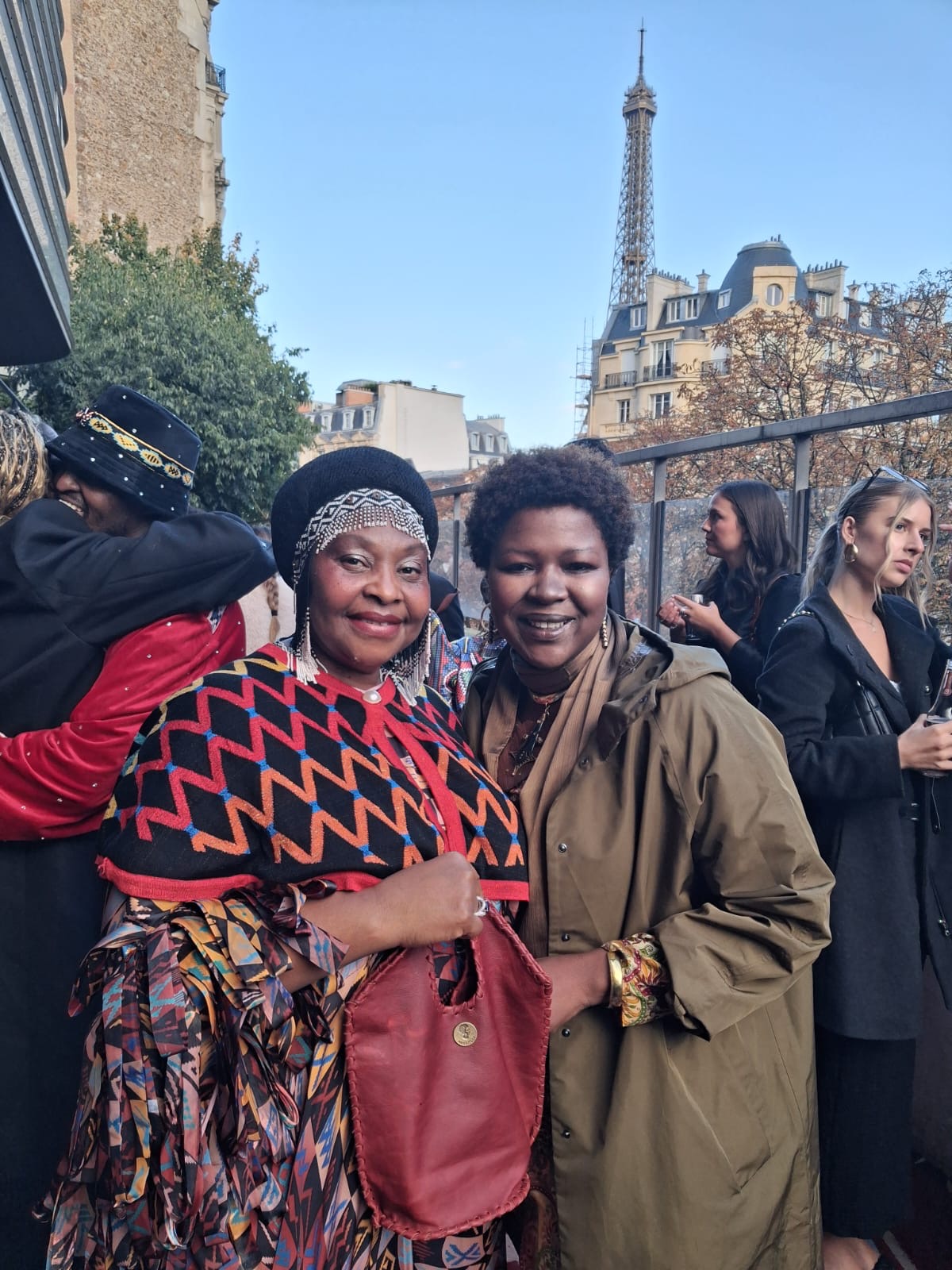By Saul Molobi
When Faith Baloyi steps onto the global fashion stage, she carries far more than a collection of accessories. She carries Africa itself: its trees, mountains, winds, rains, suns, oceans and stars. Her brand, “Negritude”, is not just fashion; it is philosophy stitched into leather, beads, brass, fabric and MEMORY.
Baloyi’s showcase at Milan and Paris Fashion Weeks this September and October is nothing short of the practicalisation of Pliny the Elder’s immortal observation: “Ex Africa semper aliquid novi” (“Out of Africa, there is always something new”). Her accessories – neckpieces that echo the bend of African rivers, earrings that gleam like constellations above the Sahara, handbags shaped with the rhythm of ancestral drums – transform African heritage into modern luxury, reframing the continent not as a curiosity but as a wellspring of timeless innovation.
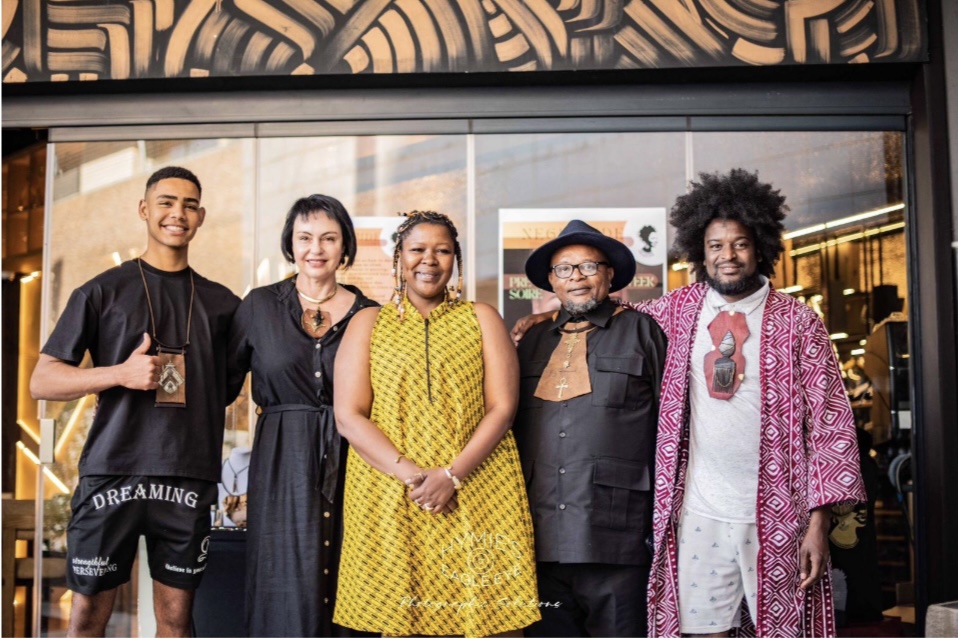
A Poetic Manifesto: Fashion as Cosmology
The guiding philosophy of “Negritude” is best captured in Faith Baloyi’s own poem:
It is the trees that taught us how to dance, the mountains how to climb,
the wind how to wave in passing,
It is the rain that demonstrated how to cleanse and the sun
how to smile upon a new day…
Each line reveals how nature inscribed lessons into human culture – how movement, prayer, song, cleansing and resilience are born of Africa’s landscapes. For Baloyi, accessories are not mere adornments; they are tactile metaphors of belonging. Her bracelets curve like rainbows after a Highveld storm, her scarves ripple like the Indian Ocean currents that “taught us how to bow in prayer.”
This poetic manifesto makes Negritude more than a label: it becomes a living archive of MEMORY, SPIRITUALITY and ARTISTRY.
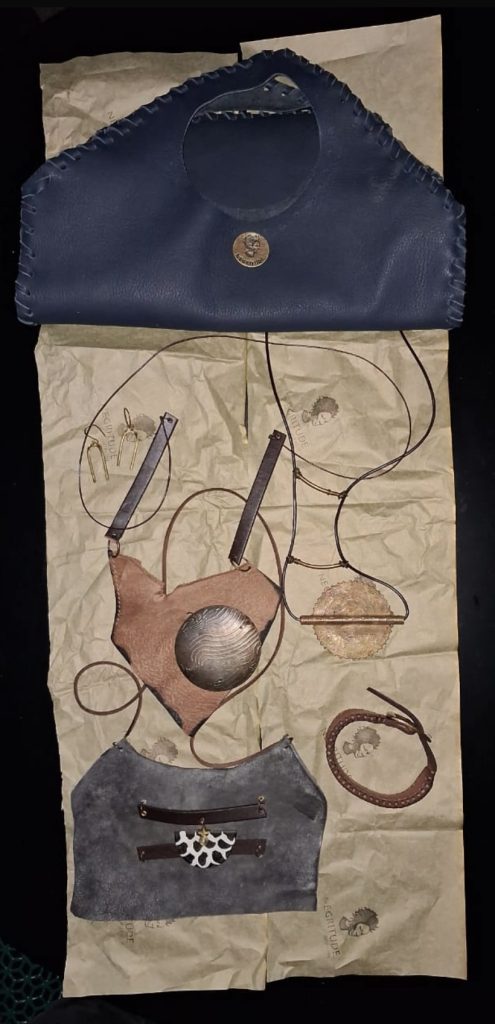
From Stage to Studio: A Multidisciplinary Journey
Faith’s journey into design is deeply layered. Born and based in Johannesburg, she first earned recognition as an actress and voice artist. A Wits University graduate with a Master of Arts in Drama and Film, she has lit up South African stages and screens, from “The Colored Museum” and “Romeo & Juliet” to TV shows like “91 Plein Street” and “Generations”. She broke into film with “Tried To” (2007), went on to feature in “Blowing in the Wind”, and later starred in international titles like “Beautifully Broken” (2017) and “Flatland” (2019 Berlinale).
Her transition into fashion design is not a departure but an expansion – every performance, every line delivered, every character embodied has sharpened her eye for detail, nuance and storytelling. Fashion, like theatre, is about presence. With “Negritude”, she stages Africa on the runways of the world.
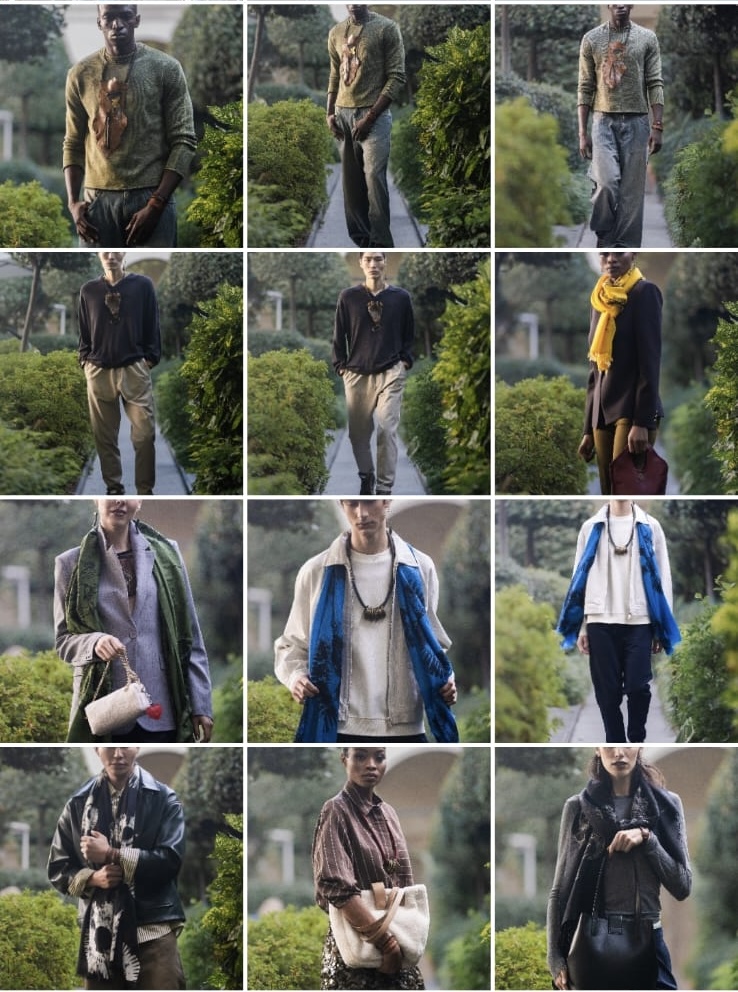
Milan, Paris, Rome: A European Itinerary of African Pride
Faith’s September–October 2025 itinerary reads like a map of ambition and destiny:
- 25 September – Negritude debuts on the runway in Milan.
- 2 October – Paris Fashion Week showcase, followed by an evening networking event.
- 5–9 October – Negritude exhibition at the South African Embassy in Rome.
- 15–17 October – House of Negritude showcase in Paris.
- 18 October – Store intake in Paris before her return to Johannesburg.
This is not mere participation. It is a cultural export, a diplomatic act in fabric and thread, positioning Negritude as Africa’s contribution to global elegance.
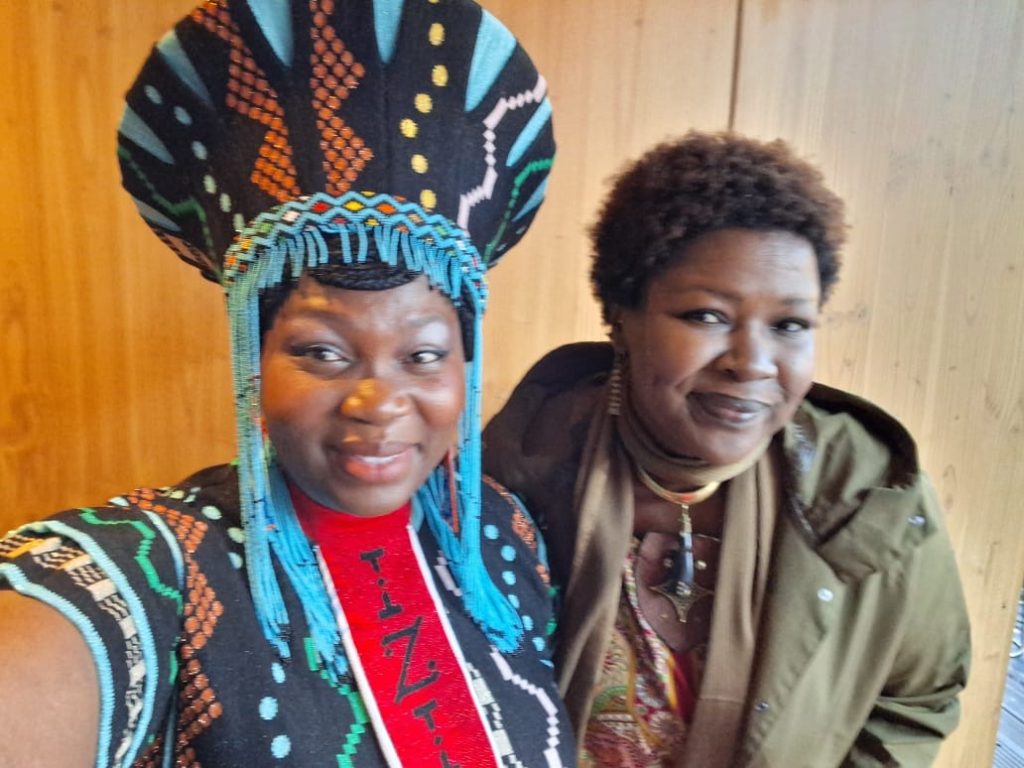
Negritude as Global Diplomacy
Baloyi’s accessories are worn statements. Each necklace is a declaration that Africa will not be imitated but celebrated; each handbag, a manifesto that memory is fashionable; each earring, an assertion that style can be philosophy.
Her work enters dialogue with the intellectual lineage of Léopold Sédar Senghor and Aimé Césaire’s “Négritude” movement – reclaiming Black identity, beauty and consciousness. But where poetry once carried the manifesto, Faith’s accessories now embody it in physical form.
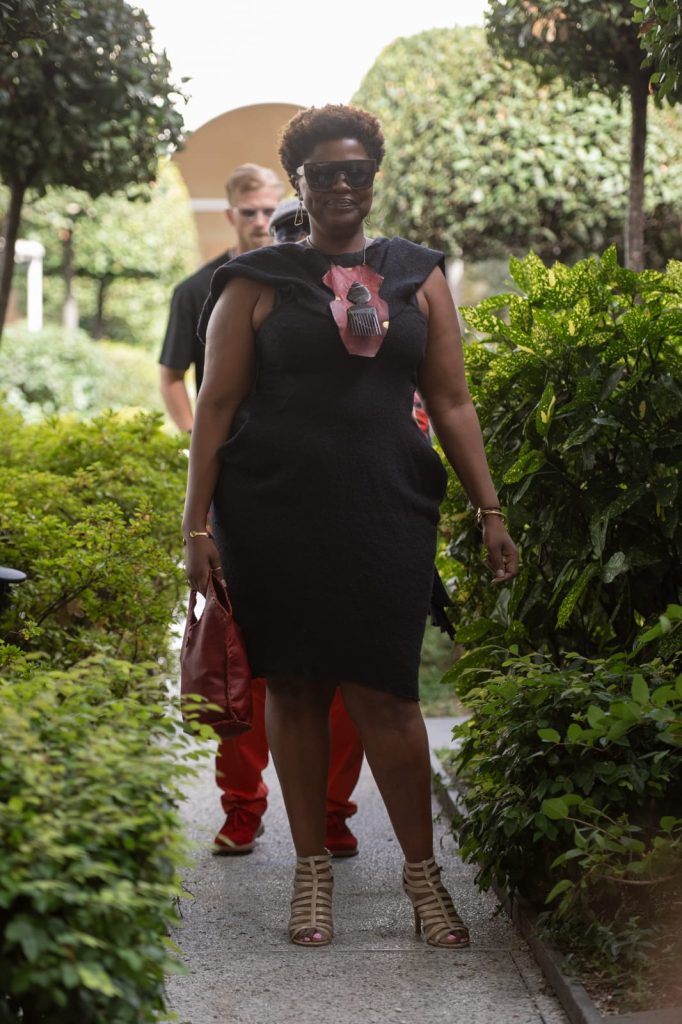
The Stars Still Wink Back
In her poem, Faith reminds us: “And then the stars that still wink back… All the while reminding us of the stuff we are made up of.”
From Milan to Paris, the stars of the fashion world are indeed winking back – at a South African actress-turned-designer who has transformed heritage into haute couture. Faith is not just showcasing a brand; she is demonstrating Africa’s infinite capacity for renewal.
For in “Negritude”, she has proven Pliny the Elder right once more: “Ex Africa semper aliquid novi”.
